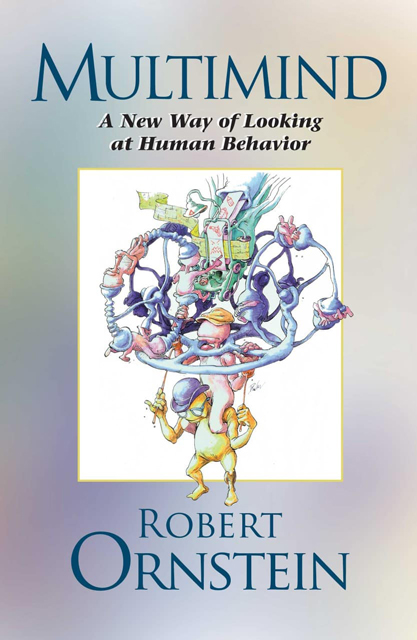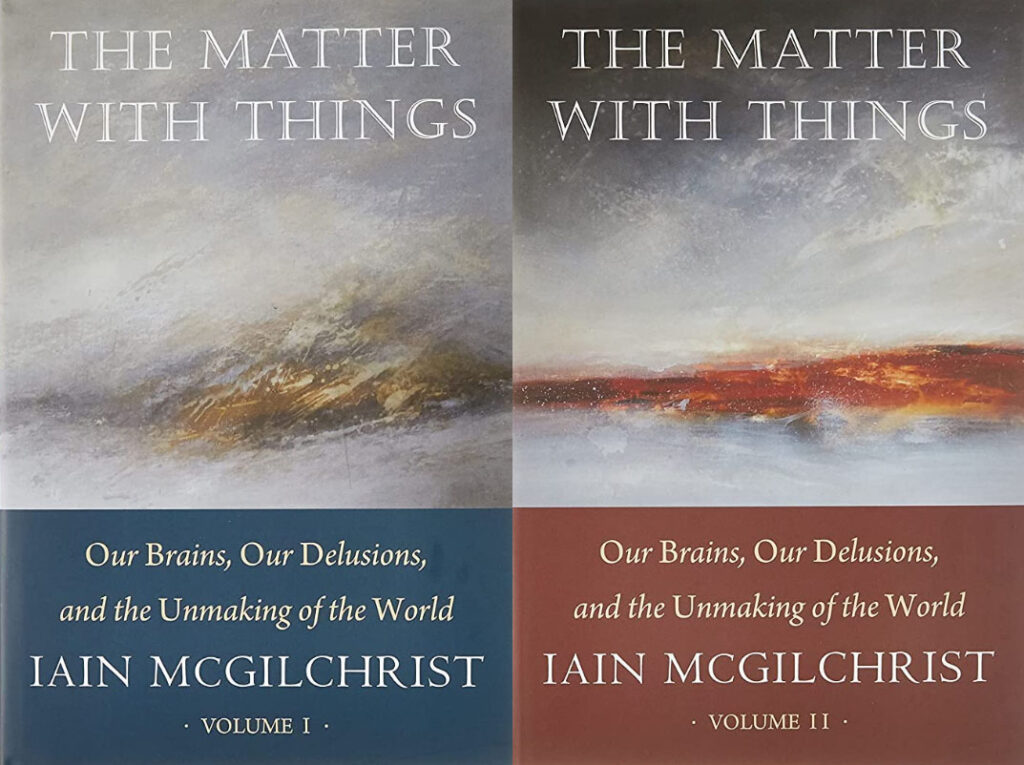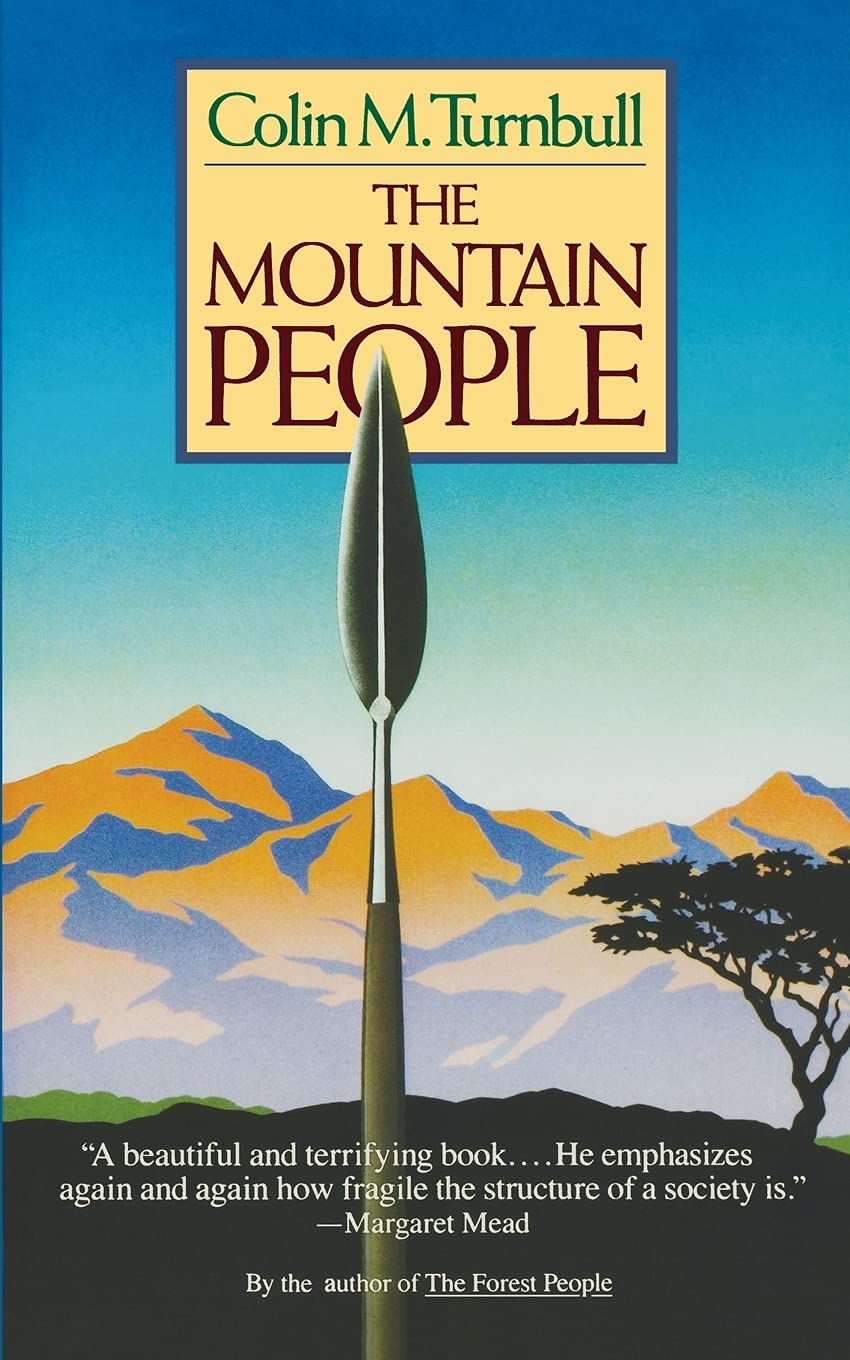In the mid-1960s, British-American cultural anthropologist Colin Turnbull travelled to Kenya to begin work on a comparative study of tribal groups in East Africa. Turnbull’s previous long-term African sojourn culminated in his 1961 book The Forest People — a first-person account about his time with the Mbuti pygmies of Belgian Congo. It was a successful ethnographic project and Turnbull was hoping for a chance to do similarly groundbreaking work again on his next trip.
However, just before getting started Turnbull found his plans bureaucratically thwarted. He chose another project to work on instead, involving the observation of another African tribe residing further north. These were the Ik people (pronounced Eek), originally a nomadic hunter-gatherer group that widely roamed the tri-border region of Uganda, Sudan, and Tanzania. The Ik appeared on Turnbull’s radar—and hence becoming his ‘Plan B’—because of a difficult situation they faced.
The Ugandan government, in an attempt to further wildlife conservation efforts, had recently restricted the tribe from hunting game in their ancestral lands of the Kidepo Valley. The Ik were also forcibly settled in the barren highlands above their valley and encouraged to take up farming and foraging—a harsh pivot away from their time immemorial nomadic pursuits. Turnbull wanted to learn how the Ik had coped with this challenging turn of events. He expected an enlightening and pleasant sojourn with them; one similar to his previous stay with the Mbuti in the Congo.
What he found upon his arrival at the Ik’s villages, instead, was a surreal and nightmarish situation that unfolded in slow-motion: a famine and widespread malnutrition had gripped the Ik. The tribe’s inability to properly fend for itself under its new sedentary circumstances, exacerbated by a drought, had left the villages reeling. The social fabric of their society had also deeply eroded. As the days and weeks passed, Turnbull noticed that the Ik’s traditional culture and their interpersonal relations were either deeply compromised, or no longer existent. Tribal members were uncharacteristically cold and manipulative with, and mistrustful of, one another — and with Turnbull, too. Not only was there little to no cultural life or social cohesion, but the severity of the conditions faced by the Ik augured a scenario of deeper starvation and societal collapse that seemed to loom just over the horizon.
Turnbull’s observations and experiences with the Ik in the period of two years he spent with them formed the basis for his next book, The Mountain People. The book was his first-person account of the disintegration of Ik society and life and, in particular, the descent of its individual members into a quasi-anarchical state marked by competitive selfishness. The work is also a commentary on the extreme fragility of human civility under conditions of the most extreme duress.
Turnbull writes of the Ik: “…they were not hunters, they were farmers, their mountain villages were far from liveable, the food was uneatable because there was not any, and the people were as unfriendly, uncharitable, inhospitable and generally mean as any people can be. For those positive qualities we value so highly are no longer functional for the Ik; even more than in our own society they spell ruin and disaster. It seems that, far from being basic qualities, they are superficial luxuries we can afford in time of plenty…”
The pages and chapters of The Mountain People record the sad and often astonishing details of this localized apocalypse that befell the Ik’s villages. Turnbull describes a society whose members were in constant competition with each other for food. Those survivalist contests involved trickery, stealing, and a general unwillingness to care for one another—including among and between members of the same close-knit families. The elderly, considered expendable, were frequently neglected and left to die. They were often buried grudgingly and hastily and without the customary funerary rites after being stripped of their belongings. Similarly, Ik children, also considered expendable, were forced to leave their family homes at the age of three to fend for themselves. Turnbull describes bands of children, with strict social hierarchies working together to survive, not unlike those described in William Golding’s fictional work, Lord of the Flies.
As the famine peaked, the Ik’s situation worsened. Tribal members began to scrounge for anything remotely suggesting nutrition: including bones, skins, dried fruit peels, half eaten berries, even barely edible plants and tree bark. Turnbull witnessed the tribe begin to die off, actually seeing individual members (some of them characters in his book), succumb to starvation among their relatively uncaring and emotionally unaffected families.
Turnbull was deeply affected by what he witnessed at point-blank range, and by the manner in which it had come to pass. The absence of any humanity shown by the Ik amid the worst suffering was somehow inconceivable to him. In The Mountain People, Turnbull could barely conceal his mix of confusion, outrage and despair:
“I had seen no evidence of family life such as is found almost everywhere else in the world,” he writes. “I had seen no signs of love, with its willingness to sacrifice, its willingness to accept that we are not complete whole by ourselves, but need to be joined by others. I had seen little that I could even call affection. I had seen things that made me want to cry, though as yet I had not cried, but I had never seen an Ik anywhere near tears of sorrow—only the children’s tears of anger, malice and hate.”
After two years with the Ik, and with the famine still ongoing and the tribe spiraling downwards, Turnbull decided to end his research and returned home.
However, within a year, the famine ended. The rains returned, allowing the surviving Ik members to grow food as was originally intended. Turnbull returned to Uganda to follow-up on their situation. But what he found again surprised and saddened him: in spite of their access to crops, the tribe still hadn’t bounced back. Ik society remained selfish and to some degree still malnourished; their fields and crops, he reported, were negligently left to languish in some cases. The Ik’s social fabric, too, was still in tatters, and perhaps even more so. Turnbull described relations between Ik members, and their villages, as dictated by a Machiavellian-style realpolitik.
Turnbull felt the deepest pessimism possible about the Ik’s future, believing their culture and well-being to be permanently compromised and blighted by the tragedy they endured. Because of this, the author tells us, he advocated that the Ugandan government disband the surviving Ik villages and assimilate its individual members into other African tribes. Turnbull believed it would be inhumane and immoral to leave the Ik to their own devices.
In the final chapter, Turnbull uses the tragic story of the Ik as a cautionary tale for the modern world, which he also saw moving in a similar moral direction as the Ik. He argued that the industrial West, suffering from material greed and the alienating effects of technology, was becoming increasingly selfish and socially atomized. Our potential for the type of inhumanity witnessed with the Ik, Turnbull believed, lay barely below the surface.
“The circumstances that have brought this about, for it certainly was not always so with the Ik,” Turnbull writes, “are admittedly extreme, but they are circumstances into which we can also conceivably fall, and the potential for what we might care to call the inhumanity that we see in the Ik is within us all.”
Fortunately, Ugandan officials didn’t take up Turnbull’s recommendations to disband the Ik. And more than half a century later the tribe has long since rebounded. The more normal caring and humanistic aspects of their culture have also since returned.
Subsequent academic studies of the Ik have recently concluded that the their descent into inhumanity was less the permanent cultural transformation that Turnbull believed it to be, and more a temporary behavioural adaptation to famine, and largely the result of the psychological and physiological effects of starvation themselves.
Meanwhile, posterity has been less than generous to The Mountain People and to Turnbull’s anthropological efforts. The same researchers who have reported the Ik’s comeback, have heaped scorn on Turnbull’s work, in some cases casting him as a biased observer who believed the Ik were inherently selfish to begin with. The cavalcade of public support at the time for Turnbull’s book from the media and other academics, who hyperbolically seized on Turnbull’s conclusions about the Ik’s ‘inhumanity’ but without Turnbull’s more sympathetic context, have fueled their more recent denunciations of him.
It is true that Turnbull was mistaken in the belief that the Ik’s behavioural adaptations were more or less permanently impressed into their culture. And his recommendations to officials to disband the tribe via assimilation among other groups, have understandably not gone down well, especially in today’s political zeitgeist. But by any re-reading of The Mountain People, one can see that Turnbull’s observations and judgements of the Ik were explicitly and repeatedly made in the context of the group’s relocation by the government, and the drought and famine they experienced. Turnbull never believed that the Ik were inherently selfish, separately from those events—thereby suggesting perhaps, to his detractors, that this selfishness was a bi-product of a flawed culture, or race:
“The relationship between cause and effect is so undeniable that one does not blame or criticize the Ik,” Turnbull writes. “If anything one admires them for surviving in spite of themselves.”
Even with what we’ve come to learn about the Ik more than half a century later, Turnbull’s account in The Mountain People is a valuable first-hand account of a society’s decline and collapse in the face of extreme deprivation. The book chronicles an episode illustrating the ascendancy of our base survival instincts and motivations—and their potential to surface under certain circumstances to dominate the better angels of our nature, even for a time.

Multimind: A New Way of Looking at Human Behavior
This provocative book challenges the most-popularly held conceptions of who we are. In it, psychologist and renowned brain expert Robert Ornstein (1942 – 2018) shows that, contrary to popular and deep-rooted belief, the human mind is not one unified entity but, rather, is multiple in nature and is designed to carry out various programs at the same time.

The Matter with Things
Iain McGilchrist
One of McGilchrist’s central points is that our society is one in which we rely on representations of the world as our way of knowing it. Scientific theories expressed in mathematical form, economic models, photographs – all re-present the reality they purport to describe.

Beyond Culture:
Edward T. Hall and Our Hidden Culture
Report by John Zada
Edward T. Hall, after spending his early adulthood working and travelling among non-Anglophones, both in the United States and in other parts of the world, became cognizant and fascinated in the deeper layers of culture that he claimed lie buried beneath those more obvious forms.
In the series: Our Mind in the Modern World
- An Ancient Brain in a Modern World
- Our Unconscious Minds
- Maintaining a Stable World
- The Multiple Nature of Our Mind
- Connecting with Others
- Morality’s Long Evolution
- Unconscious Associations
- The Brain’s Latent Capacities
- God 4.0
- Multimind: A New Way of Looking at Human Behavior
- Thinking Big
- Social
- The Weirdest People in the World
- The Righteous Mind
- New World New Mind
- Moral Tribes
- The Matter with Things
- Humanity on a Tightrope
- Fluke
- Beyond Culture

